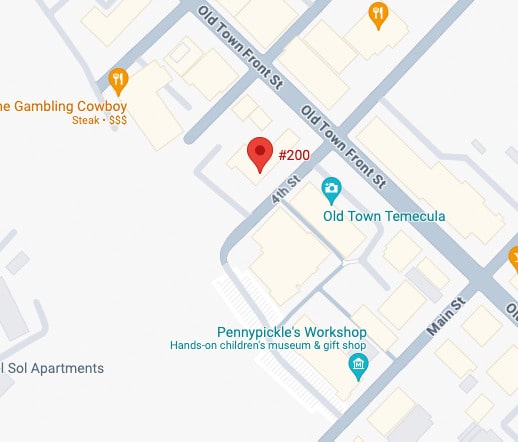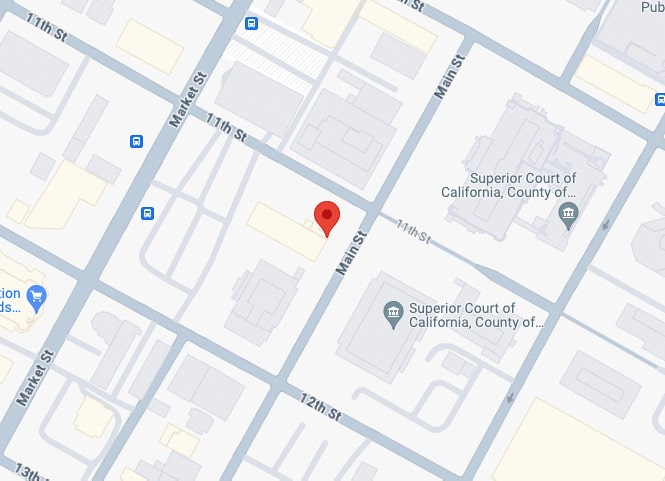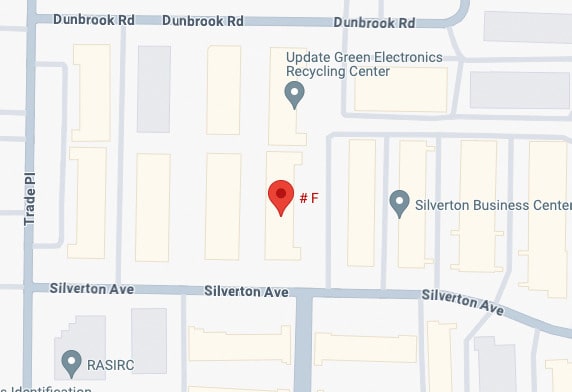Securing a loved one’s pretrial release becomes a top priority when they are arrested. For many, a bail bond feels like a lifeline, but the financial impact goes well beyond the bail bond fee. Although the bail bond is not a loan per se and does not necessarily appear on your credit report, those financial choices can significantly affect your credit rating and financial position. Because bail fees are often paid with credit cards, and missed payments can go to collections, it is important to understand how the process may indirectly impact your financial health. The information below breaks it down.
Do Bail Bonds Show Up on Credit Reports?
No, your credit report does not show a bail bond. An average bail bond arrangement is not a loan or a line of credit. Thus, when co-signing a bail bond, the action will not be recorded with the three major credit bureaus, Equifax, Experian, and TransUnion, and will not appear on your credit history.
While the bail bond itself does not impact your credit, the financial actions you take to pay for it can. This is a significant distinction. For example, when you pay the bail bondsman with a credit card and fail to pay the balance on the credit card, the higher debt and higher credit utilization ratio will be reported to the credit bureaus. This may cause a drop in your credit score.
If the defendant misses court and the bail is forfeited, the bondsman will attempt to recover the full amount. This may include seizing collateral, including a house or car. If you need to take out a loan to cover those costs, that loan activity will appear on your credit report. Defaulting on that loan can severely damage your credit.
A bail bond is a contract, not a credit product. However, the financial fallout from missed payments can hurt your credit in real and lasting ways.
How Bail Bonds Can Indirectly Hurt Your Credit
While bail bonds do not show up directly, the financial transactions around them can hurt your credit. The effect is indirect and may take time to show. Some ways bail bonds can affect your credit score include:
Paying Bail Premiums with a Credit Card
One common way bail can affect your credit is by paying the non-refundable premium with a credit card. The typical bail bond premium is about 10% of the total bail amount. You take on a new debt when you use your credit card to pay this fee. If you fail to pay off the balance quickly, your credit utilization ratio increases. This ratio is determined to see how much credit you are utilizing in relation to how much credit is available to you. High utilization signals risk to lenders and can temporarily lower your credit score. Missing even minimum payments leads to late fees, high interest, and a potential debt spiral.
Defaulting on Payment Plans
Several individuals could not pay the full 10% premium at once and instead chose a bail bond company payment plan. In this situation, the danger to your credit is far more immediate. Although the initial bail bond agreement is not a loan, a premium payment plan is a credit. These are covered as legal contracts. Failure to pay or default on this financing deal allows the bail bondsman to sue you to recover the money. This nearly always involves placing the account with a collections agency.
Upon sending a debt report to collections, the collections agency will list the account in the major credit bureaus. A collections account is a harsh negative entry in your credit report and may significantly decrease your credit rating. This bad credit may be on your credit report for as long as seven years, and you find it very hard to be approved to take loans, mortgages, or even new credit cards in the future. The harm of a collection account is much greater and longer-lasting than the momentary plunge of a large credit utilization ratio.
Along with damaging your credit, the bail bondsman may sue you to seize any security you used to obtain the bond. This may comprise real estate, cars, or other property. These legal actions and the possible loss of property are an even bigger financial setback than the harm to your credit rating.
The Role of a Credit Check in the Bail Bond Process
A bail bondsman normally conducts a credit check on a co-signer during their underwriting. This is, nevertheless, not a permit to grant a conventional loan, but the evaluation of your financial worthiness and the personal risk of a bail bondsman.
A bail bondsman acts as an insurance company. They promise to post the entire bail sum to the court, which is a substantial financial burden, hoping that the defendant will show up throughout the rest of his/her court proceedings. If the defendant flees, the bondsman pays the whole bail amount. To reduce this risk, they must be sure that you, the co-signer or "indemnitor," have the money to pay the bond if the defendant defaults.
An indemnitor is an individual who enters into a legal agreement with a bail bond company, where he/she consents to cover the full sum of the bail if the defendant fails to appear before the court during his/her court proceedings. They become the co-signer and guarantor of the bail bond. A family member or a close friend who strongly trusts the defendant and is willing to accept this substantial financial risk can be a cosigner or indemnitor.
An indemnitor has great responsibility and liability, namely:
- Their first duty is to make sure that the accused comes to court. If the accused misses the bail, then the indemnitor can legally claim back the full amount of the bail from the bail bond company.
- In case of large bail sums, the indemnitor can be requested to offer collateral, for example, a house or a car. The bail bond company can seize and sell this collateral to settle the defendant's debt.
The bail bondsman uses the credit check to estimate your general financial stability. They check your credit report and payment history to see whether you have a habit of paying on time and have any current or previously accumulated collection debt. A clean credit history indicates that you are a reliable individual who will honor the payment agreement for the bond premium and, more importantly, a responsible individual when making sure that the defendant shows up in court.
The Role of Your Credit Report in a Bail Bond Agreement
Pulling your credit report by a bail bondsman will lead to a hard inquiry. This is a formal request for your credit information from a credit bureau, and it is visible to other lenders. One credit investigation tends to trigger a slight and temporary dip of a few points in your credit score. Although this is not a significant drop, several hard questions within a short period can make it noticeable because it can be seen as a sign that you are a high-risk borrower.
The terms of your bail bond agreement are directly related to your credit history. Good credit history can be helpful when it comes to better conditions. It can be a flexible payment plan with a lower down payment. For example, a bondsman can accept a low initial deposit on the premium and let you pay the balance in installments over a few months.
On the other hand, the history of credit deficits or significant negative marks, like defaults or collections, may signal major red flags. A bail bondsman might require a higher down payment on the premium or may insist on collateral to post the bond in this instance. The reasoning is straightforward: the bondsman will need greater security to safeguard their financial interests if your record of financial activity indicates that you are a higher risk.
The Financial Risks of Pledging Collateral for a Bail Bond
Pledging collateral is one of the most significant financial risks in obtaining a bail bond. Although it does not directly impact your credit score, losing a valuable asset may be devastating.
Collateral is a real and physical property that you promise to a bail bond company as a guarantee to post the entire bail. It serves as a security measure for the bondsman to affirm that they can recover their money if the defendant does not attend court. Usual examples of collateral are:
- Real estate — The title to a house, apartment, or land
- Vehicles — The title to a car, boat, or motorcycle
- Cash — An amount of money in escrow
- Other valuables — Jewelry, stocks, bonds, or other valuable property
In almost all cases, a bail bondsman will demand collateral when the bail amount is high. Through this, they seek to mitigate the high financial risk they undertake.
When you agree to put your property up to secure your bonds, the bail bond company will put a lien on it. A lien is a right or a legal claim over an asset, which is usually sold to secure a debt. For real estate, the bail bondsman files a legal document with the county or state to register their interest in the property. A publicly registered lien places a security hold on the property.
When there is a lien on the property, and so long as it exists, you cannot legally sell the property, transfer it, or refinance without the bail bondsman. This is a crucial point many people don't fully understand: the lien does not allow a person to use his/her own possession at will, and it will not be removed until the court proceedings have been completed and all terms of the bail bond are fulfilled.
The worst aftereffect of collateral use is the risk of forfeiture. If the defendant on whom you co-signed does not show up at a court hearing date, the court forfeits the bail bond. This means the bail bondsman is now liable to the court for the full bail amount.
The bail bondsman is within the law to sell your collateral to earn back this money. This process is similar to a bank foreclosure. The bail bondsman will initiate the legal procedures to acquire ownership of the asset and sell it, and the money obtained will be used to pay the forfeited amount of the bail. You can still be liable for the difference if the asset's sale price is lower than the bail amount.
It is the worst financial consequence of the bail bond procedure. Although losing a home or car is not immediately reflected on your credit report, it is a tremendous financial blow that may take decades to recover from. It can quickly wipe out your life savings and destabilize your finances.
The Financial Impact of a Forfeited Bond
When the courts forfeit a bail bond and there is no collateral to hand over, the bail bond company will pursue you, the co-signer, to pay the entire bail fee. This can lead to a catastrophic financial consequence, including a civil judgment, directly affecting your credit report.
A bail bond agreement is a legally binding agreement. A failure by a defendant to appear in court and a forfeiture of the bond translates to a breach of a contract. Since you are the co-signer, you signed an agreement to pay the full bail amount if the defendant does not abide by their obligation. Therefore, the bail bondsman is not just losing their money. They could claim a sum from you that they must now pay the court. This situation makes you a debtor.
The bail bondsman will initiate an effort to contact you and clear the debt. When you cannot or refuse to pay, they will take the next step in the collection process: a civil lawsuit.
The bail bond company will sue you for the registered debt in federal court. This is not a criminal case but a civil one. You will be served with a summons and a complaint. The bail bondsman will seek a court order or a legally enforceable judgment that forces you to pay.
You will have an opportunity to defend yourself in a court of law. However, since you signed a contract, your legal options may be limited unless you can prove that the bail bondsman breached the conditions of the agreement. For example, if the defendant was re-arrested or killed before the court date, you might be able to set aside the forfeiture. Nonetheless, the court will favor the bail bondsman in most intentional flight cases.
If the bail bond company succeeds in the suit, they will be awarded the civil judgment against you in the bail amount, with court expenses and legal fees. Here is where the greatest and most direct harm to your credit occurs. A civil judgment is a matter of public record and will be disseminated to the three biggest credit agencies.
Civil judgments are among the most damaging entries on your credit report. It warns every future lender, landlord, and potential employer that you have an outstanding court debt you did not pay. A judgment may cost you hundreds of points in your credit and stay on your credit report for up to 7 years.
The bail bondsman may use aggressive collection methods to enforce the judgment, including:
- Wage garnishment — A court order to your employer to take away some of your wages and send them to the bail bondsman until the debt is paid
- Bank account levies — This is a legal action to freeze your bank accounts and withdraw funds to satisfy the debt
- Property liens — This is a lien on any property you own, including real estate or cars. This will prevent you from selling or refinancing the property until the debt is paid.
A civil judgment is a legal tool for the bail bondsman to take your property and wages, even though you did not promise to do so initially. The financial consequences are harsh and prolonged, usually long-lasting and often exceeding the initial bail premium.
Find a Bail Bondsman Near Me
Obtaining a bail bond is an important decision in a challenging situation, but you need to understand its far-reaching financial implications. Although that bail bond will not be listed on your credit report, the effects of a hard credit inquiry, defaulted payment plan, or civil judgment could seriously harm your credit rating. Moreover, pledging collateral puts your most valuable assets at risk of forfeiture, leading to potential financial ruin.
Navigating this complex process requires understanding the risks and having a trustworthy partner. Justice Bail Bonds will take this journey with you. We will help you understand every condition of your contract, enabling you to make informed decisions without jeopardizing your financial future. When you or a loved one requires assistance with bail, you do not have to face the legal and financial system alone. Contact us today and talk to a professional bail bondsman. We will offer you the confidential assistance and guidance you need to proceed. Contact our Temecula bail bondsmen at 714-541-1155 for further assistance.









